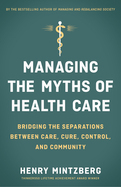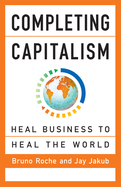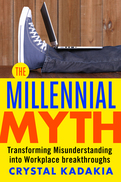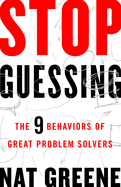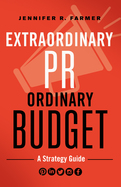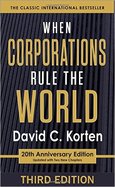Search Results: ""
Results 835-840 of 1358
“Health care is not failing but succeeding, expensively, and we don't want to pay for it. So the administrations, public and private alike, intervene to cut costs, and herein lies the failure.”
In this sure-to-be-controversial book, leading management thinker Henry Mintzberg turns his attention to reframing the management and organization of health care.
The problem is not management per se but a form of remote-control management detached from the operations yet determined to control them. It reorganizes relentlessly, measures like mad, promotes a heroic form of leadership, favors competition where the need is for cooperation, and pretends that the calling of health care should be managed like a business.
“Management in health care should be about dedicated
and continuous care more than interventionist and episodic cures.”
This professional form of organizing is the source of health care's great strength as well as its debilitating weakness. In its administration, as in its operations, it categorizes whatever it can to apply standardized practices whose results can be measured. When the categories fit, this works wonderfully well. The physician diagnoses appendicitis and operates; some administrator ticks the appropriate box and pays. But what happens when the fit fails—when patients fall outside the categories or across several categories or need to be treated as people beneath the categories or when the managers and professionals pass each other like ships in the night?
To cope with all this, Mintzberg says that we need to reorganize our heads instead of our institutions. He discusses how we can think differently about systems and strategies, sectors and scale, measurement and management, leadership and organization, competition and collaboration.
“Market control of health care is crass, state control is crude, professional control is closed. We need all three—in their place.”
The overall message of Mintzberg's masterful analysis is that care, cure, control, and community have to work together, within health-care institutions and across them, to deliver quantity, quality, and equality simultaneously.
In this sure-to-be-controversial book, leading management thinker Henry Mintzberg turns his attention to reframing the management and organization of health care.
The problem is not management per se but a form of remote-control management detached from the operations yet determined to control them. It reorganizes relentlessly, measures like mad, promotes a heroic form of leadership, favors competition where the need is for cooperation, and pretends that the calling of health care should be managed like a business.
“Management in health care should be about dedicated
and continuous care more than interventionist and episodic cures.”
This professional form of organizing is the source of health care's great strength as well as its debilitating weakness. In its administration, as in its operations, it categorizes whatever it can to apply standardized practices whose results can be measured. When the categories fit, this works wonderfully well. The physician diagnoses appendicitis and operates; some administrator ticks the appropriate box and pays. But what happens when the fit fails—when patients fall outside the categories or across several categories or need to be treated as people beneath the categories or when the managers and professionals pass each other like ships in the night?
To cope with all this, Mintzberg says that we need to reorganize our heads instead of our institutions. He discusses how we can think differently about systems and strategies, sectors and scale, measurement and management, leadership and organization, competition and collaboration.
“Market control of health care is crass, state control is crude, professional control is closed. We need all three—in their place.”
The overall message of Mintzberg's masterful analysis is that care, cure, control, and community have to work together, within health-care institutions and across them, to deliver quantity, quality, and equality simultaneously.
Proven, Profitable, and Sustainable
For the past fifty years, leaders in the business world have believed that their sole responsibility is to maximize profit for shareholders. But this obsessive focus was a major cause of the abuses that nearly sunk the global economy in 2008. In this analytically rigorous and eminently practical book, Bruno Roche and Jay Jakub offer a more complete form of capitalism, one that delivers superior financial performance precisely because it mobilizes and generates human, social, and natural capital along with financial capital. They describe how the model has been implemented in live business pilots in Africa, Asia, and elsewhere. Recent high-profile books like Capital in the Twenty-First Century have exposed financial capitalism's shortcomings, but this book goes far beyond by describing a well-developed, field-tested alternative.
For the past fifty years, leaders in the business world have believed that their sole responsibility is to maximize profit for shareholders. But this obsessive focus was a major cause of the abuses that nearly sunk the global economy in 2008. In this analytically rigorous and eminently practical book, Bruno Roche and Jay Jakub offer a more complete form of capitalism, one that delivers superior financial performance precisely because it mobilizes and generates human, social, and natural capital along with financial capital. They describe how the model has been implemented in live business pilots in Africa, Asia, and elsewhere. Recent high-profile books like Capital in the Twenty-First Century have exposed financial capitalism's shortcomings, but this book goes far beyond by describing a well-developed, field-tested alternative.
The Millennial Myth
2017
Ready for the Future or Stuck in the Past?
Millennials have been condemned as lazy, entitled, disloyal, and disrespectful and needing constant hand-holding. But Crystal Kadakia—a Millennial herself as well as an organizational development consultant and two-time TEDx speaker—shows that not only are these negative stereotypes dead wrong, but each one conceals a positive workplace practice that forward-looking companies must adopt if they are to endure. She illuminates how the advent of digital technology is the crucial root cause of many Millennial behaviors and offers a guide for what our traditional workplace needs to do to attract, engage, and retain modern talent.
Millennials have been condemned as lazy, entitled, disloyal, and disrespectful and needing constant hand-holding. But Crystal Kadakia—a Millennial herself as well as an organizational development consultant and two-time TEDx speaker—shows that not only are these negative stereotypes dead wrong, but each one conceals a positive workplace practice that forward-looking companies must adopt if they are to endure. She illuminates how the advent of digital technology is the crucial root cause of many Millennial behaviors and offers a guide for what our traditional workplace needs to do to attract, engage, and retain modern talent.
Stop Guessing
2017
Become the greatest problem solver you can be!
Bad problem solving costs individuals and society incalculable amounts of time, money, and sanity. In this book Nat Greene—who's been solving hard problems professionally for over twenty years—shares nine behaviors anyone can adopt to find solutions to even the most seemingly intractable problems.
The problem with most problem solving, Greene says, is that it's not problem solving at all: it's guessing. We have an idea of what might work and we try it out. If that doesn't work, we try something else. And so on. It's inefficient at best, and with really hard problems there are simply too many variables for guessing to work. Greene shows you how to adopt the behaviors great problem solvers use to arrive at solutions efficiently—without guessing. He illustrates them with examples ranging from everyday issues like fixing a malfunctioning garage door to stopping frequent breakdowns at a chemical plant (saving millions of dollars) to addressing the scourge of poverty in sub-Saharan Africa. So stop guessing and start solving today!
Bad problem solving costs individuals and society incalculable amounts of time, money, and sanity. In this book Nat Greene—who's been solving hard problems professionally for over twenty years—shares nine behaviors anyone can adopt to find solutions to even the most seemingly intractable problems.
The problem with most problem solving, Greene says, is that it's not problem solving at all: it's guessing. We have an idea of what might work and we try it out. If that doesn't work, we try something else. And so on. It's inefficient at best, and with really hard problems there are simply too many variables for guessing to work. Greene shows you how to adopt the behaviors great problem solvers use to arrive at solutions efficiently—without guessing. He illustrates them with examples ranging from everyday issues like fixing a malfunctioning garage door to stopping frequent breakdowns at a chemical plant (saving millions of dollars) to addressing the scourge of poverty in sub-Saharan Africa. So stop guessing and start solving today!
Low Cost, High Impact!
Public relations is a make-or-break factor for all organizations, especially those that are small or mission driven. While it can be tempting to think that PR is a luxury only larger organizations can afford, PR expert Jennifer R. Farmer shows how her CCRR framework—being credible, creative, responsive, and relentless—is the silver bullet for even cash-strapped organizations.
Farmer emphasizes that effective public relations is in fact an essential component of organizational development—people need to know about you for your organization to have maximum impact. Her CCRR framework leverages tools everyone has access to, from social media to brand transparency, and requires attentiveness more than money. Farmer shows you that, no matter how modest your budget, you can build a cost-effective communications strategy that will help you break through the noise in an information-overloaded world.
Public relations is a make-or-break factor for all organizations, especially those that are small or mission driven. While it can be tempting to think that PR is a luxury only larger organizations can afford, PR expert Jennifer R. Farmer shows how her CCRR framework—being credible, creative, responsive, and relentless—is the silver bullet for even cash-strapped organizations.
Farmer emphasizes that effective public relations is in fact an essential component of organizational development—people need to know about you for your organization to have maximum impact. Her CCRR framework leverages tools everyone has access to, from social media to brand transparency, and requires attentiveness more than money. Farmer shows you that, no matter how modest your budget, you can build a cost-effective communications strategy that will help you break through the noise in an information-overloaded world.
Our Choice: Democracy or Corporate Rule
A handful of corporations and financial institutions command an ever-greater concentration of economic and political power in an assault against markets, democracy, and life. It's a “suicide economy,” says David Korten, that destroys the very foundations of its own existence.
The bestselling 1995 edition of When Corporations Rule the World helped launch a global resistance against corporate domination. In this twentieth-anniversary edition, Korten shares insights from his personal experience as a participant in the growing movement for a New Economy. A new introduction documents the further concentration of wealth and corporate power since 1995 and explores why our institutions resolutely resist even modest reform. A new conclusion chapter outlines high-leverage opportunities for breakthrough change.
A handful of corporations and financial institutions command an ever-greater concentration of economic and political power in an assault against markets, democracy, and life. It's a “suicide economy,” says David Korten, that destroys the very foundations of its own existence.
The bestselling 1995 edition of When Corporations Rule the World helped launch a global resistance against corporate domination. In this twentieth-anniversary edition, Korten shares insights from his personal experience as a participant in the growing movement for a New Economy. A new introduction documents the further concentration of wealth and corporate power since 1995 and explores why our institutions resolutely resist even modest reform. A new conclusion chapter outlines high-leverage opportunities for breakthrough change.


